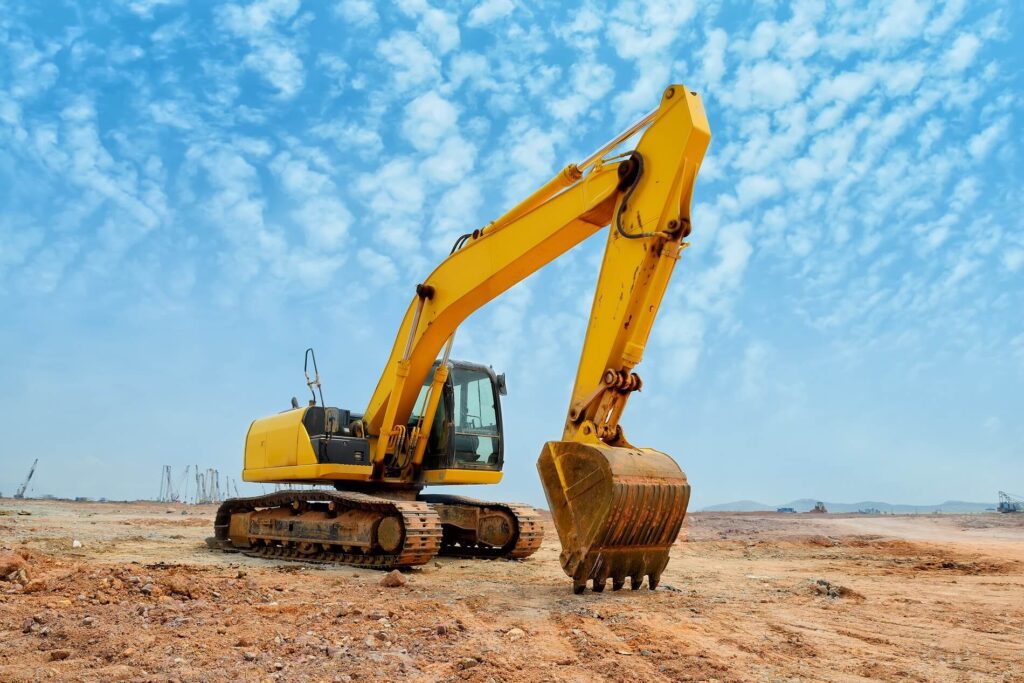Variables to Review When Leasing Building And Construction Equipment for Cost-Effective Workflow
When taking into consideration the service of building equipment for economical procedures, various aspects come into play that can considerably influence the total job expenditure. Evaluating devices requirements, rental terms, maintenance expenses, project duration, and performing a complete cost evaluation are essential action in ensuring optimum economic effectiveness and operational success. Each of these elements holds the prospective to either streamline operations and decrease expenditures or bring about unanticipated expenses and task delays. By carefully analyzing these variables, building and construction firms can make informed choices that not only profit their profits yet likewise add to the total efficiency of their jobs.
Devices Specs

Aspects such as gas consumption, operating rate, and technology integration contribute to tools performance. By focusing on capability, durability, and performance in devices specs, building and construction job managers can improve functional effectiveness and eventually accomplish successful task end results.
Rental Terms
To make sure a clear understanding of the terms associated with renting out construction tools, it is critical for job supervisors to meticulously examine and discuss the rental contract (heavy equipment rental). Rental terms include numerous facets that can substantially influence the general expense and effectiveness of a building project. Key elements to consider include the rental period, pricing framework, payment terms, upkeep obligations, insurance protection, and arrangements for tools break downs or breakdowns
When examining the rental agreement, task managers need to pay very close attention to the period of the rental period. Understanding whether the rental charges are based upon a hourly, everyday, weekly, or month-to-month price is essential for budgeting and scheduling objectives. In addition, clarifying the settlement terms, such as in advance costs, safety deposits, and charges for late payments, can assist avoid unforeseen monetary concerns.
Moreover, talking about maintenance duties ahead of time can prevent conflicts in the future. Clearly describing that is accountable for regular upkeep, repair services, and maintenance can ensure that the tools continues to be in ideal problem throughout the rental period - heavy equipment rental. It is likewise important to verify the insurance protection supplied by the rental business to stay clear of any kind of responsibilities in case of accidents or problems. By very carefully examining and discussing the rental terms, job managers can safeguard cost-effective equipment rentals that satisfy their job requirements.
Maintenance Prices

When reviewing maintenance expenses, think about aspects such as regular maintenance, substitute of components, and emergency situation repair work. Some rental companies provide maintenance bundles heavy equipment rental that cover these prices, while others may require tenants to birth the full maintenance costs. Calculating the total price of possession, consisting of upkeep, provides a more accurate image of the service's financial impact. By budgeting for upkeep prices adhering and upfront to suggested servicing timetables, occupants can alleviate unpredicted expenditures and make the most of the effectiveness of the leased building and construction devices.
Job Duration
Effective task duration management is essential to optimizing the use of rented building equipment and making sure prompt conclusion of tasks. When renting building and construction equipment, considering the job period is essential for economical operations. A clear understanding of the task timeline allows for better planning and utilization of equipment, making sure that the right devices are readily available for the required duration without incurring unneeded costs. Matching the rental duration to the job's estimated duration assists in staying clear of any kind of potential late fees or added costs that might arise from going beyond the agreed-upon rental timeframe. Additionally, efficient task period management allows construction groups to enhance their operations, boost productivity, and meet task deadlines successfully. By lining up the rental period with the job routine, building firms can make the most of using tools, reduce downtime, and inevitably achieve price financial savings on their tasks. Consequently, examining and precisely approximating the task period is a crucial consider renting out building devices for optimum cost-effectiveness.
Price Evaluation
Straightening the job duration with a thorough cost evaluation is necessary in optimizing the economic efficiency of leasing building and construction tools. Carrying out an extensive cost evaluation involves even more than simply comparing rental rates.
One crucial facet of expense evaluation is recognizing your job's specific equipment demands. Leasing equipment that is either underutilized or excessive used can bring about unnecessary expenses. Examining the job needs and picking the appropriate kind and amount of equipment can assist lessen prices while making certain functional efficiency.
In addition, comparing the expenses of purchasing versus leasing equipment is vital. While leasing might appear affordable for short-term projects or customized devices, buying could be a lot more cost-effective for long-lasting or regularly utilized machinery. By considering the pros and cons of both options, you can make tactical choices that align with your budget plan and job goals.
Conclusion
Finally, evaluating aspects such as equipment requirements, rental terms, upkeep prices, task period, and expense evaluation is crucial when leasing construction devices for economical procedures. By carefully thinking about these variables, construction companies can guarantee they are getting the a lot of worth out of their equipment services and inevitably save cash on their tasks. It is important to focus on cost-effectiveness and effectiveness in all facets of building and construction procedures.
Examining equipment specs, rental terms, upkeep costs, job duration, and performing a detailed expense evaluation are critical actions in guaranteeing ideal financial efficiency and functional success. By prioritizing capability, resilience, and efficiency in devices specifications, building and construction project supervisors can boost functional performance and ultimately achieve effective project results.

By lining up the rental period with the job timetable, building and construction firms can maximize the usage of equipment, minimize downtime, and eventually achieve cost savings on their jobs.In verdict, reviewing factors such as equipment requirements, rental terms, upkeep expenses, task period, and expense evaluation is vital when leasing construction tools for economical operations.